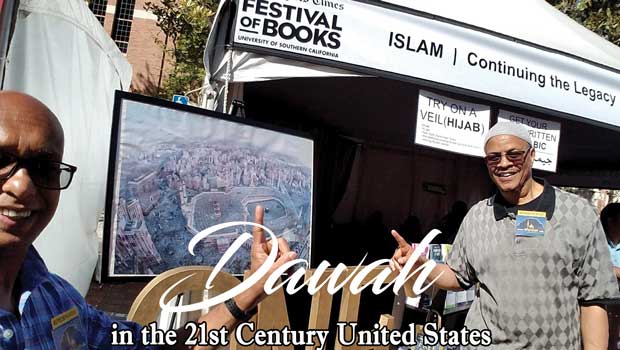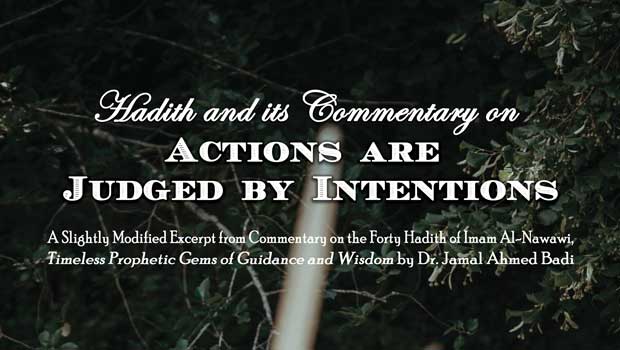The quest for religious freedom and choice is indelibly etched throughout the history of the 242-year-old social and political experiment known as the United States of America. Here, members of immigrant faith communities from across the globe have practiced and propagated, with relative openness and freedom, their religious beliefs with less interference and government opposition than in their origin countries, including Muslim-majority countries. The young nation’s first amendment to the U.S. Constitution provides that “Congress shall make no law respecting an establishment of religion, or prohibiting the free expression thereof…” The declaration by the United States government that it is committed to and will protect individual expressions of “freedom of religion” has been a comforting hope for those suffering religious persecution in their countries.
King Henry VIII of England ignited a crisis among European Christians when, in the 1530s, he broke away from Pope Clement II and the Catholic Church, declared his spiritual supremacy over the Pope, and initiated the Church of England. His actions fomented theological divisions among European Christians, setting the stage for some Christians to abandon their ancestral homelands to seek freedom across the ocean to practice their faith without interference. Some of the earliest European settlers in North America were English Protestants known as Puritans. Puritans sought to purify the Church of England from Roman Catholic doctrine, contending that the Church of England was not fully purged of Catholic practices. These Puritans, called Pilgrims, settled the first English colonies in the country, with the Massachusetts Plymouth Colony in 1620 and the Massachusetts Bay Colony in 1629. The prevailing narrative about the settlement and occupation of this country purports that the majority of European immigrants settling in this country were driven by a quest for freedom to practice their religion. This is a partial truth. Also spurring immigration to the colonies was a desire to increase wealth through the acquition of resource-rich land. Convicted criminals were sent to the colonies, particularly by England, to rid the country of their criminal element. Some colonies rejected those transported convicts, but others utilized them as cheap labor, paying the shippers for convicts who were then put to work as indentured servants in agriculture, ship building, iron manufacturing, and other occupations.To varying degrees, persons have been motivated to immigrate to the United States, since its founding, for reasons of religious freedom and material gain.
ICNA has, by the Grace of
Allah, identified dawah and service to humanity as utmost priorities over the course of its 50-year organizational existence
Except for African Muslims forcibly brought to the United States via the Trans-Atlantic slave trade, Muslims, like other faith practitioners, have come to this country and experienced varying levels of receptivity to their faith by the American populace and local, state, and national governments. One constant in the lives of Muslims in America is dedication to dawah, the invitation to submit to Allah, and the response by persons of varying backgrounds and ethnicities. From the turn of the 20th century until the 1980s, the most visible da’ees, callers to Islam, were inner city African American Muslims who utilized every available means including canvassing neighborhoods, publishing brochures and flyers about Islam, and lecturing on high school and college campuses. As the number of Muslims from Muslim-majority countries increased in visibility throughout the American landscape and their dawah efforts increased as well, larger numbers of the American public were exposed to the clarion call of Muslims: “La illaha illah, Muhammadar Rasulullah,” there is no god but Allah, and Muhammad is His Messenger. Organized dawah efforts in the United States have contributed to Islam being the fastest growing religion in the United States, a statistic that is rarely challenged even by the most Islamophobic groups. This organized call of dawah has reached to the halls of government and business, to ethnic enclaves, colleges and universities, and jails and prisons throughout America. An interesting footnote about this proliferation of the systematic call of Islam is that the incarcerated population has experienced the most rapid and consistent increase in the number of new Muslims in recent years.
The Islamic Circle of North America (ICNA) has, by the Grace of Allah, identified dawah and service to humanity as utmost priorities over the course of its 50-year organizational existence. Why Islam, Gain Peace, Embrace, Message Magazine, Noor Magazine, ICNA Council for Social Justice, ICNA Relief, Helping Hand for Relief and Development, Young Muslim Brothers, Young Muslim Sisters, ICNA Sisters, all divisions of ICNA, have embraced the mission of dawah as an essential element of their work. The work of ICNA is to continue the Prophetic mission of calling to submission to our Creator, Allah, and embracing in every aspect of our individual and collective lives the guidance of Islam. We know that ultimately it is not in our control to bring about the conversion of individuals to Islam, as that profound matter of the heart is the sole purview of Allah. How else can we account for the consistent growth in the number of Muslims in this country, even in this Islamophobic environment, where there is the freedom to choose any religion from a multiple of choices. We must know that Allah guides American men and women to Islam despite misrepresentations of the religion by adversaries, and notwithstanding the failings of Muslims.





